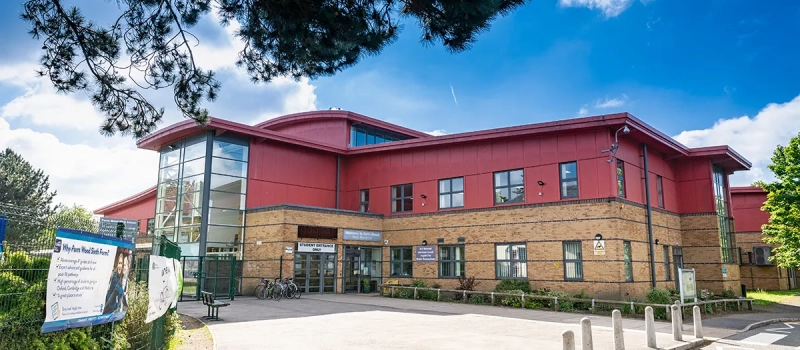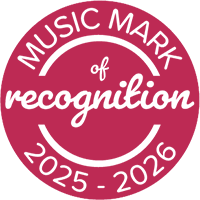Remote Education Provision
We hope that this information will help to inform students and parents/carers about what to expect from remote education when national or local restrictions require cohorts of students to stay at home. This is not expected as a ‘usual’ occurrence, but when something unexpected happens that is likely to affect a large number of children for an extended period of time.
Where remote is to replace in person teaching, parents will be notified.
The remote curriculum: what is taught to students at home?
During periods of remote learning, students will follow their usual daily timetable of lessons, attending lessons on Google Classroom. Teachers will continue to teach the planned curriculum, making any necessary changes to activities to enable effective delivery online.
A student’s first day of being educated remotely might look different from our standard approach, while we take all necessary actions to prepare for a longer period of remote teaching.
What should my child expect from immediate remote education on the first day of students being sent home?
- If for any reason it is not possible to begin delivery of live lessons from the first day students are sent home, all students have access to paper based or electronic subject checklists which refer to work in study guides/revision guides/workbooks/online that should be completed following the planned curriculum
- KS3 students will focus on English, Maths and Science work
- KS4 and 5 students will have work for the full range of curriculum subjects studied
- Senior staff will communicate with students/parents/carers through email/the school website/Google Classroom to provide further instructions about activities to be completed
Following the first day of remote education, will my child be taught broadly the same curriculum as they would if they were in school?
We teach the same curriculum remotely as we do in school wherever possible and appropriate. However, for practical subjects Drama, PE, Art, and Technology, depending on the planned activities, these may be adapted more significantly so that students can engage using whatever resources they may have at home.
Remote teaching and study time each day
If remote education is triggered, your child will be expected to follow their usual timetable.
In addition,
- KS3: Students in KS3 are also expected to complete 30 minutes independent reading (of suitably challenging material) per day
- KS4: Students are also expected to complete 60 minutes of independent reading and/or study (as directed by staff) per day
- KS5: Students are also expected to complete 30 minutes of wider subject reading and 120 minutes of independent study (as directed by staff) per day
Accessing remote education
How will my child access any online remote education you are providing?
- Students will access their live lessons and homework/independent learning tasks through Google Classroom. They can join live lessons through the links posted in Google classroom pages
- For KS3 and 4, electronic copies of subject checklists which help students to understand the programme of study for the half-term for each subject, will be posted in the relevant Google Classroom. For KS5, these are posted in the relevant course classroom
- Students should check their school email account regularly for updates and any additional advice and guidance
- Students can collect paper, exercise books from the reception as required
Any issues with passwords should emailed to: a.cumbor@pwhs.co.uk
If my child does not have digital or online access at home, how will you support them to access remote education?
We support our students to access remote education in the following ways:
- Laptops or tablets may be issued to students based on parental/student request, with priority given to students in KS4 and 5. (Note we have limited supplies of ‘spare’ devices)
- Requests for hardware/technical support/support with connectivity can be made through the Year office emails
- All students can access subject checklists for the half-term on Google Classroom or in paper based form
- KS3 students have study guides for English, Maths and Science
- KS4 students have revision guides and workbooks or equivalent for all subjects
- KS5 students have textbooks/revision guides/workbooks or equivalent for all subjects
- If students do not have a digital device, they should use a combination of subject checklists, subject appropriate books and work packs to guide their learning. These students should ensure that all written work is carefully organised ready to hand in for feedback from their teachers on return to school. Depending on the lengths of the period of remote learning, students may be asked to return their work to school for feedback
If you require specific support or advice to enable your child to continue their learning, please contact school. The main reception is open during normal school hours or please email your child’s Director of Learning directly.
Note: If you are contacting us electronically, please do not use your child’s school email account or Google Classroom account to contact us, use your own email address.
How will my child be taught remotely?
We use a combination of the following approaches to teach students remotely:
- Live teaching (online lessons on Google Classroom) following each student’s timetable
- Recorded teaching when live teaching is not possible (video/audio recordings made by teachers, oak academy: classroom.thenational.academy)
- Set activities to be completed
- Websites/apps to support the teaching of specific subjects:
- Dr Frost (Maths)
- Educake (English)
- Educake (Science)
- Memrise (Languages)
- BCC Bitesize (all school subjects)
- Seneca Learn (some school subjects)
- Subject checklists for all subjects available electronically via Google or as a paper based resource
- Study guides/revision guides/revision workbooks/textbooks and reading books which students have at home
- Printed paper packs produced by teachers (e.g. workbooks, worksheets)
While students are at home learning remotely, we will continue to provide a wider calendar of events and provision to support progression, wellbeing and engagement.
Students will be encouraged to enter local and national competitions.
Membership of BorrowBox is encouraged to support students’ reading habits.
Engagement and feedback
What are your expectations for my child’s engagement and the support that we as parents and carers should provide at home?
- Our expectations are that students engage with online learning in the way that that they would with learning in school. The students understand that we expect full participation and high standards of behaviour and know that we require that all adults and students are treated with respect in the virtual learning space
- Our video explains our expectations for behaviour on Google Classroom
- Students are expected to attend 5 lessons each day and complete pastoral activities. They should arrive to live lessons and other activities on time and complete homework to teacher deadlines
- Students who do not have access to electronic devices are expected to work to their timetable, spending a similar amount of time on equivalent paper based work
We ask that parents/carers:
- Help your son/daughter to establish a routine, with regular times for getting up and going to bed
- Ensure your son/daughter has a suitable learning environment at home where they can focus on their work without interruptions
- Reinforce school standards and expectations
- Ensure your son/daughter accesses live lessons and completes the related work
- Encourage your son/daughter to take breaks mid-morning and at lunch-time, have some off-screen time and get her daily outdoor exercise
- Contact us if you have any questions or need to update us about your child’s needs during school closure
We will update parents/carers on your child’s conduct and reward excellent effort and/or work via email and phone calls.
How will you check whether my child is engaging with their work and how will I be informed if there are concerns?
- A register is taken for each lesson. Parents/carers are contacted if students do not attend in the first instance by staff
- If we have concerns about non-engagement, Directors of Learning will contact home to see how we can help students to engage
- If there are very low levels of engagement, we may make a home visit
- If students do not meet our high expectations in terms of behaviour in online spaces, we contact parents/carers and where necessary put sanctions in place, including suspending participation in live lessons
- If students are not able to meet our expectations for behaviour in the virtual learning space, they will have to use paper-based resources and return school loaned devices
To support students in managing their emotional health and wellbeing:
- All students have an opportunity to complete a weekly wellbeing survey to help us address and issues or anxieties. Any issues raised are dealt with through follow up email contact or phone calls. Students have the option to request a phone call
- Each year group has a weekly online drop in meeting where students can chat with a member of the year team about any matters they wise to raise
- The PE curriculum has been adapted where possible to give students time to focus on wellbeing, stress busting techniques and mindfulness
How will you assess my child’s work and progress?
Feedback can take many forms and may not always mean extensive written comments for individual students. For example, whole-class feedback or quizzes marked automatically via digital platforms are also valid and effective methods, amongst many others. Our approach to feeding back on student work is as follows:
- Students will submit classwork and homework to their teachers in a range of ways e.g. by uploading work on to Google classroom, completing quizzes and activities in online Forms, completing work through apps and websites such as Dr Frost (Maths)
- Students will receive feedback on their work through a variety of methods e.g. automatic marking of quizzes in online Forms, teacher feedback through assignments on Google Classroom, whole class feedback within lessons
- Feedback will be given in a variety of ways e.g.
- Comments/voice notes recorded on student work in Google
- Marks and comments from quizzes and assessments
- A whole class feedback sheet with actionable next steps
- Automatic marking from engagement with online resources such Dr Frost (Maths), Educake (Science), Memrise (Languages) with next steps guidance
Additional support for students with particular needs
How will you work with me to help my child who needs additional support from adults at home to access remote education?
We recognise that some students, for example some students with special educational needs and disabilities (SEND), may not be able to access remote education without support from adults at home. We acknowledge the difficulties this may place on families, and we will work with parents and carers to support those students in the following ways:
- The majority of students with SEND or other additional needs will join live lessons from home on Google Classroom. As they would in class, teachers will differentiate their approach so that students can access work, alongside their peers
- Teaching assistants will join live lessons to support differentiation and use features such as Breakout rooms are sometimes used to allow them to work with students in smaller groups
- Students with SEND or other additional needs which may make it difficult for them for them to work from home, will be offered a place in school
- When in school as far as possible, students will join in live lessons with their peers, with the support of a Teaching Assistant. If this is not possible, for example in the case of teacher absence, students will complete equivalent paper based work
- If your child is experiencing difficulties with the work set, please contact the year team or the class teacher via email or by ringing school
- If there is a specific learning need, please contact our school SENCo, Miss C Doherty: sendco@pwhs.co.uk
- An additional package of support is in place who students who are vulnerable
- Weekly phone calls will be made home for targeted students to support with home learning. If necessary, home visits will be made to support home learning















